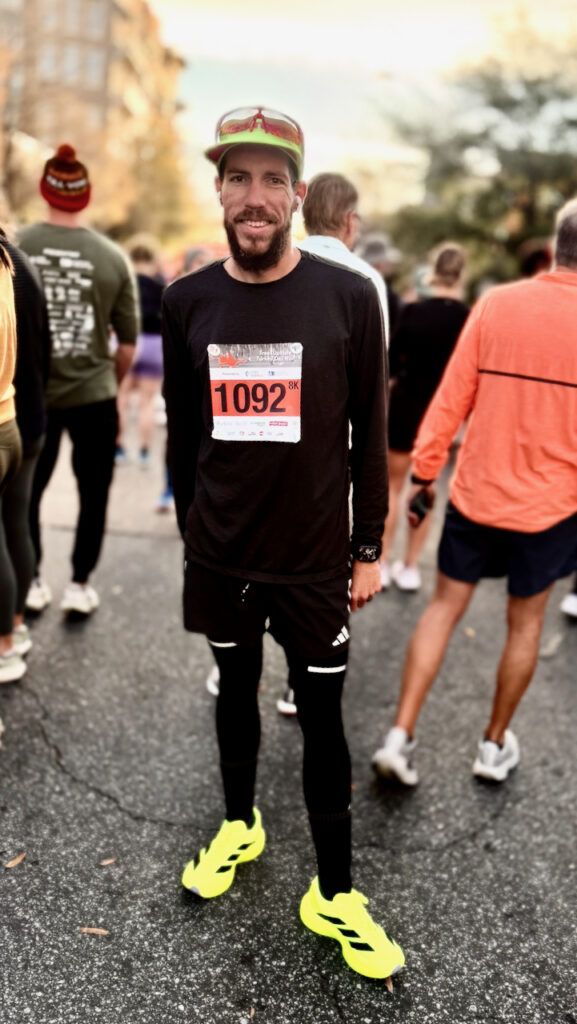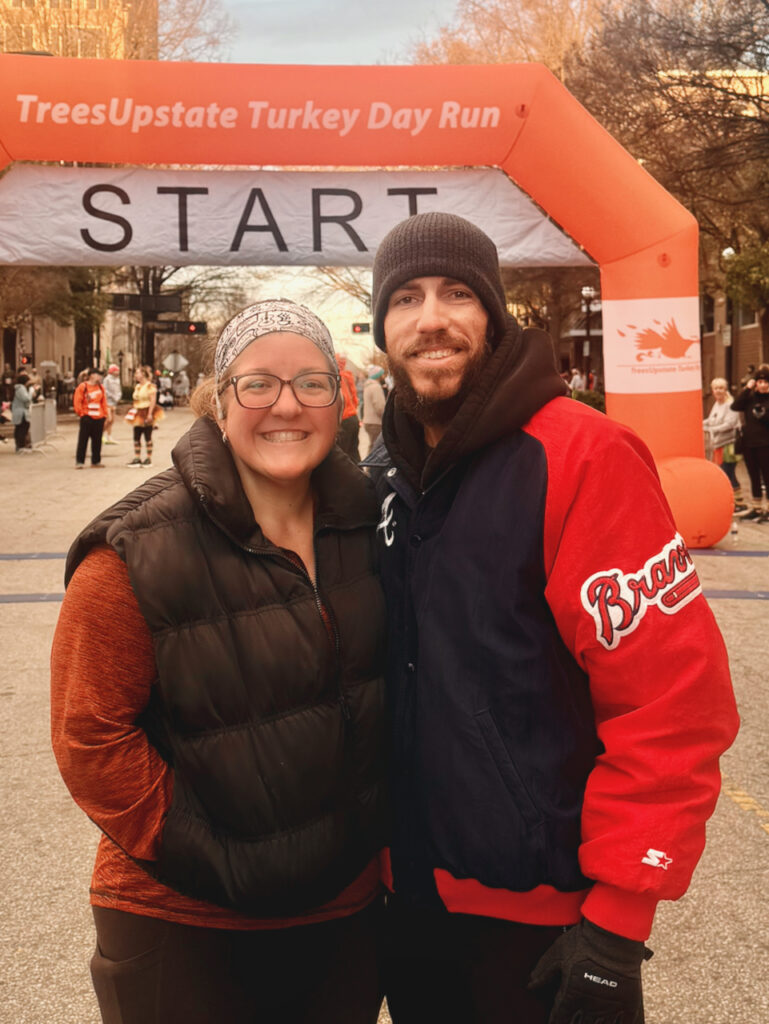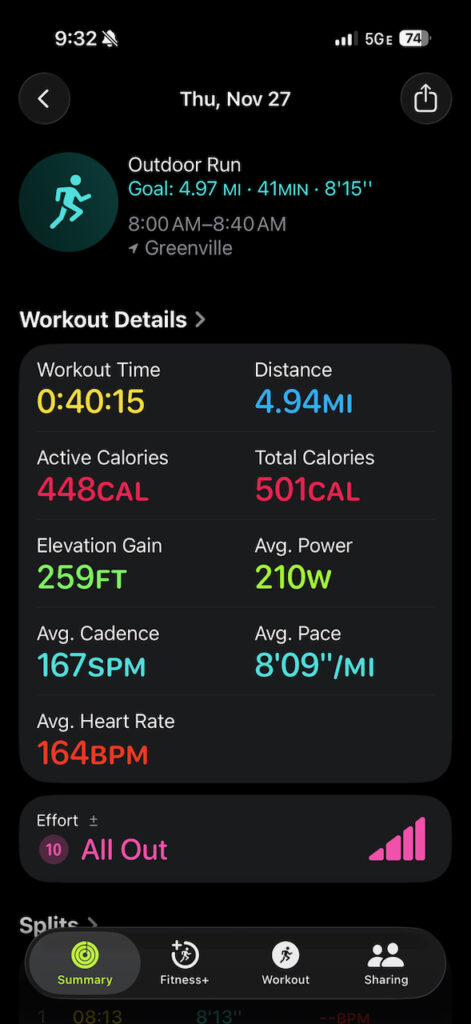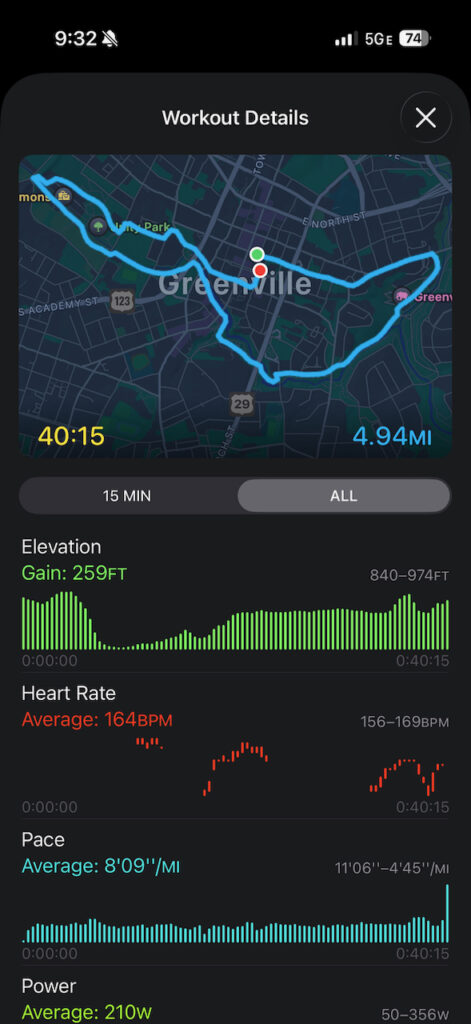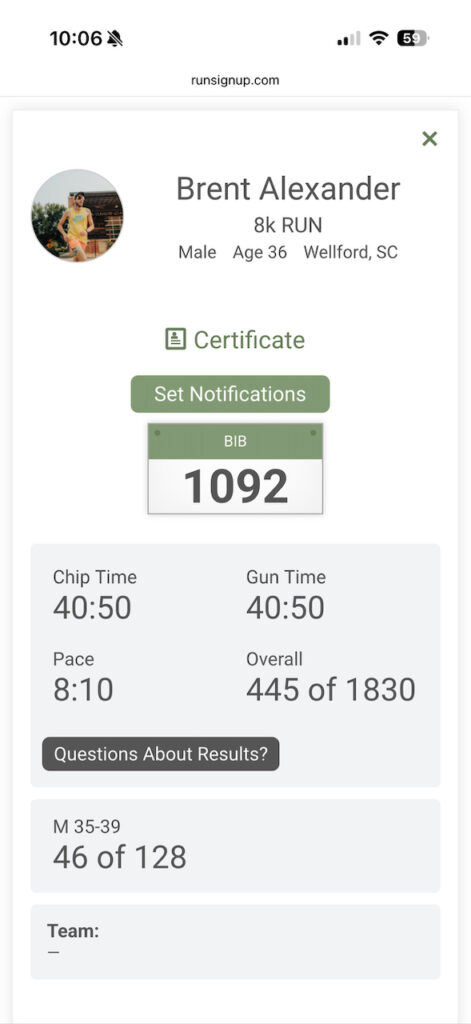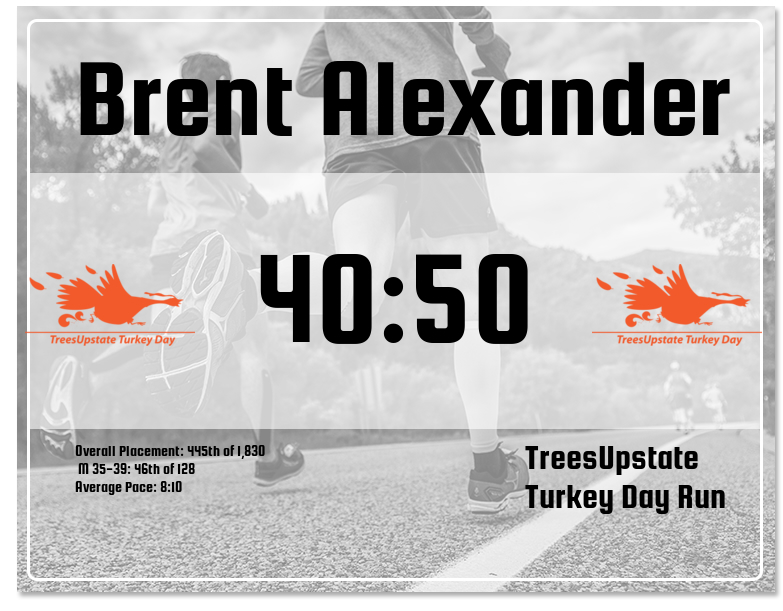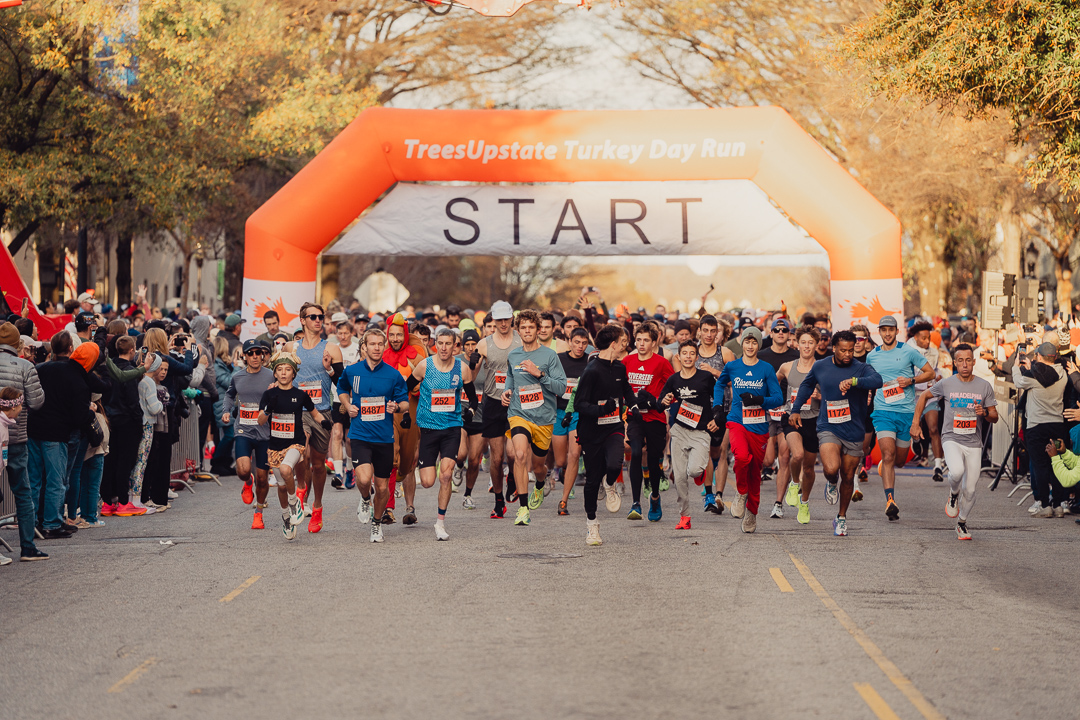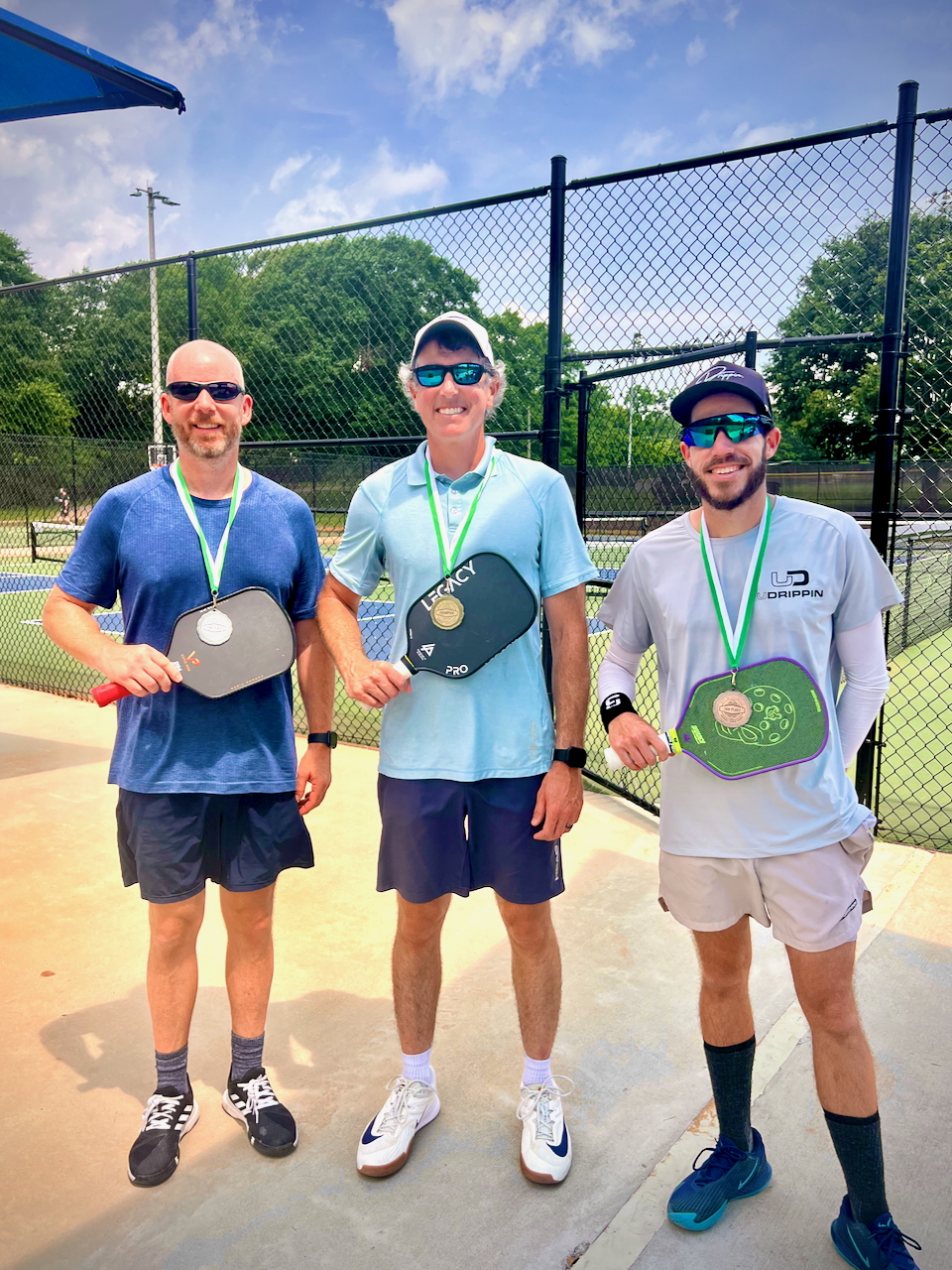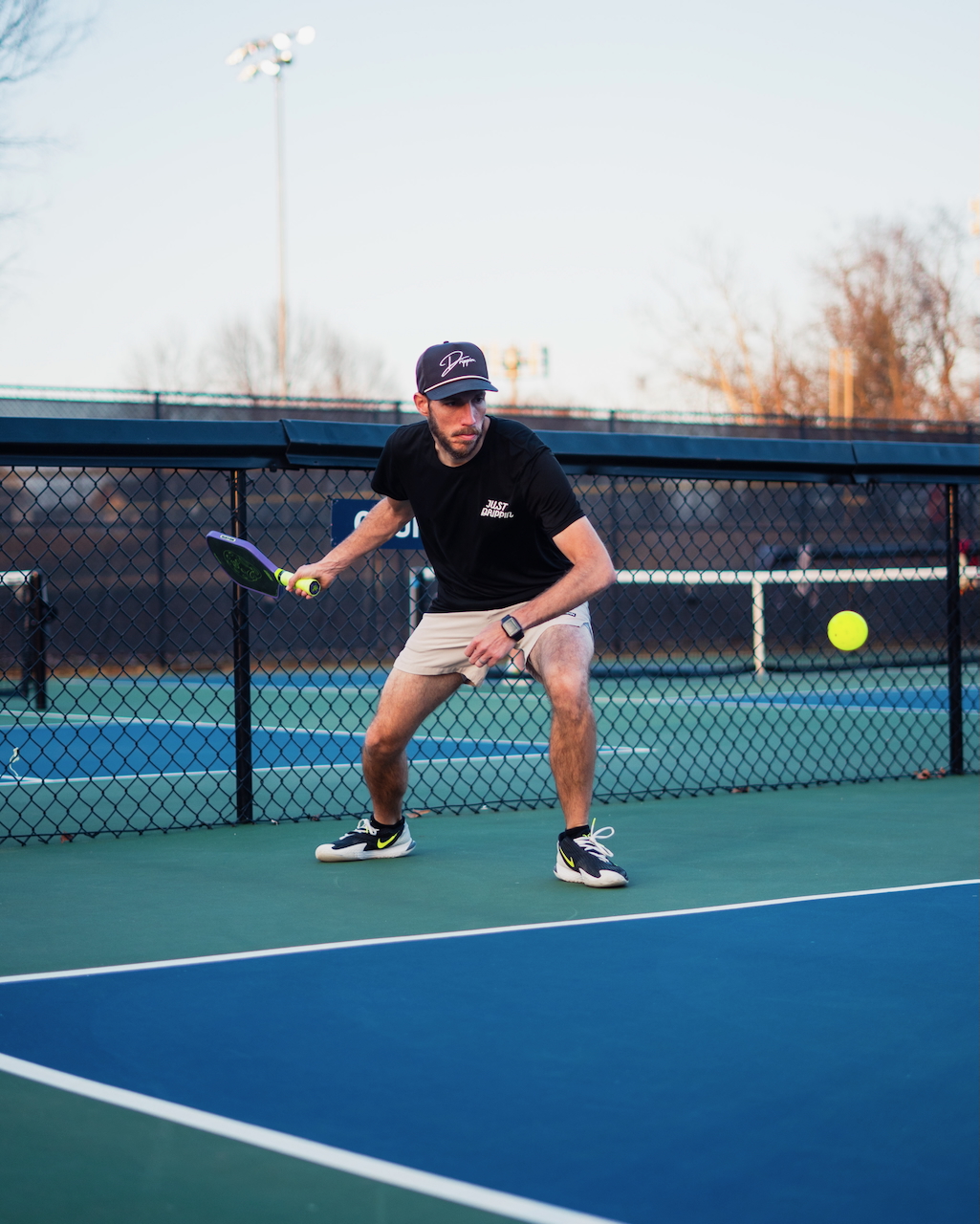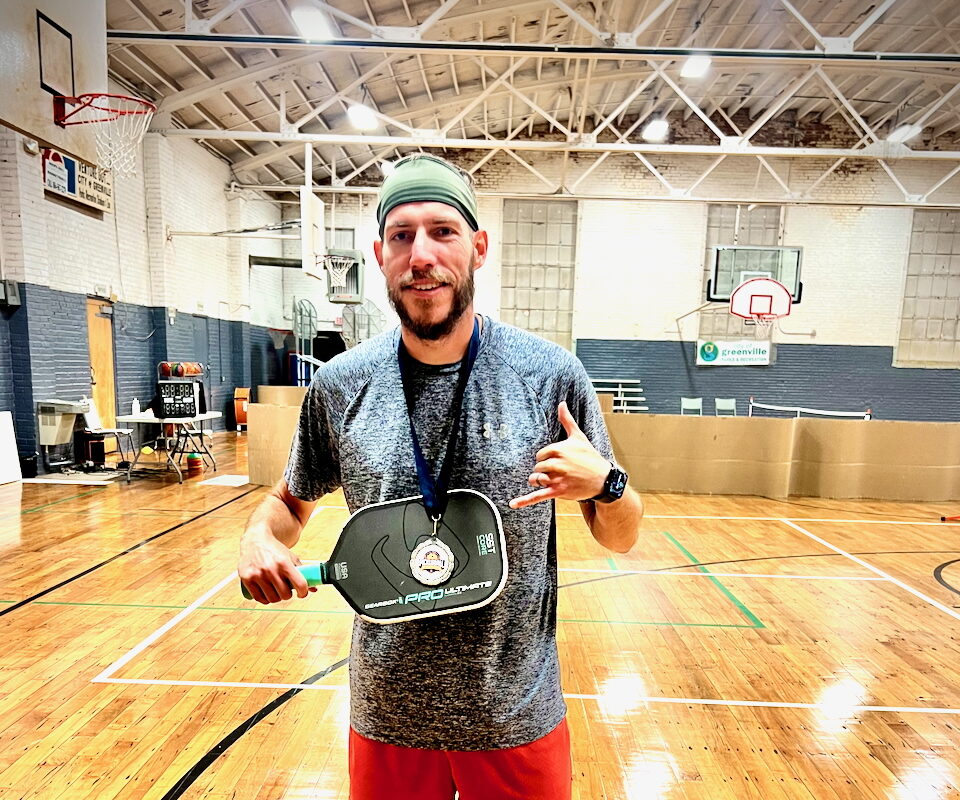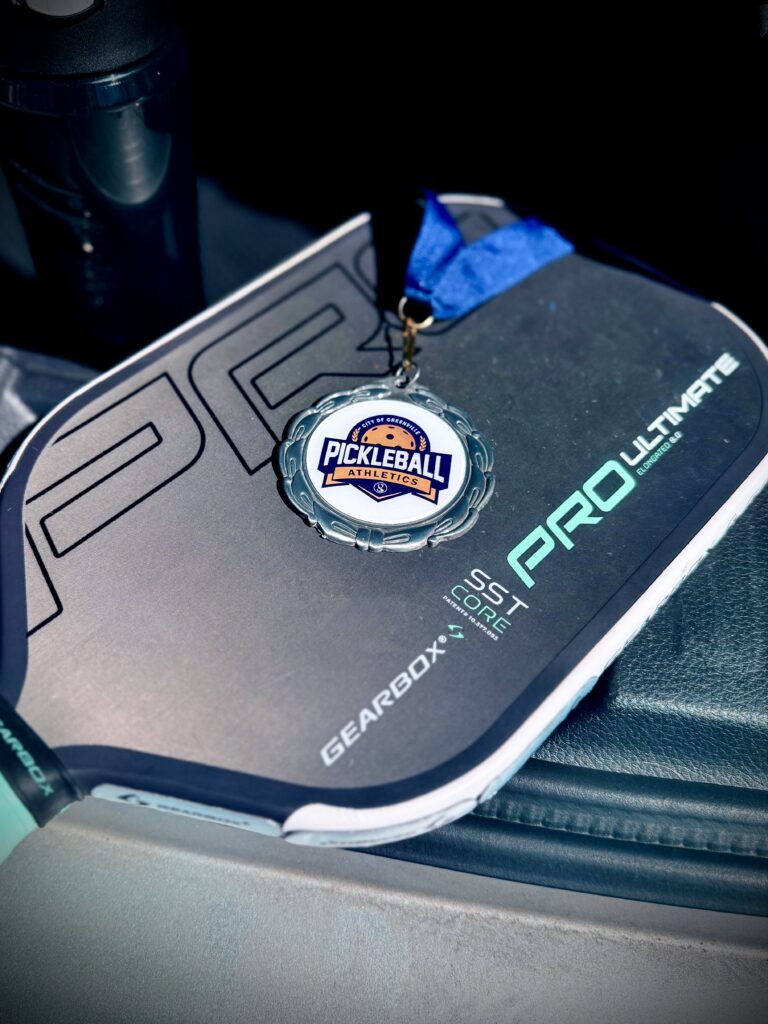Running the Thanksgiving Turkey Day Run in Downtown Greenville has quickly become one of my favorite holiday rituals. While most people ease into the morning with warm coffee and the Macy’s parade, more than 8,000 runners gather for the annual Trees Upstate Turkey Day Run, lining up shoulder to shoulder, shaking off the cold, and buzzing with that “let’s do this” race-day energy.
For years, this race was something I did purely for fun, with no real training or expectations. I’d show up and run/walk the 5K course (not the longer 8K route) and call it a morning.
But this year was different.
This year, I came with a goal.
It’s officially been one year since I decided to train as a competitive runner—one year since I stopped winging it and started building real consistency. And on Thanksgiving morning, those steady miles and discipline all showed up in one massive way:
A new PR—14 minutes faster than last year.
🏁 40:15 8K
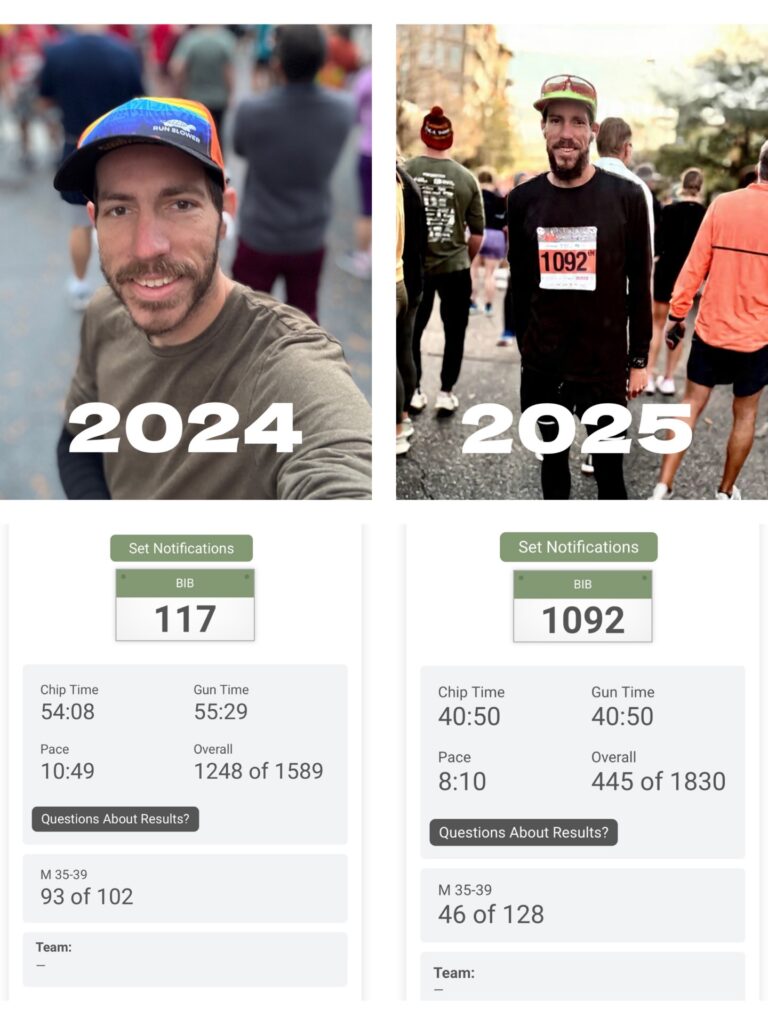
Running in Gratitude
If Thanksgiving has a theme, it’s gratitude. And this year, that theme felt especially real for me.
As I crossed the finish line and caught my breath, I felt gratitude move through me in a way I wasn’t expecting.
I’m grateful for strong legs that have carried me through every mile of training.
I’m grateful for a calm, grounded mind that now works with me instead of against me.
I’m grateful for the clarity and peace that running continues to create in my life—mile by mile, week by week.
This sport has become more than exercise. It’s become a space where I build the version of me I want to bring into the rest of my life.
This PR Isn’t the Finish Line
A personal record feels amazing—but it’s not the end of anything. If anything, it’s just another check-in point along the journey.
I’m stronger than I was last year. More confident and more capable. And I have more belief than I ever had before.
But I’m also nowhere near my ceiling.
With my half-marathon coming up in December in Wilmington, NC, I’m already setting my sights on another PR. It’s another challenge to see what a year of commitment can turn into.
But before all that, I’m letting myself pause for a moment to acknowledge the progress and honor the work I’ve put in. And to remind myself that the path I’m on is the right one.
Same holiday.
Same course.
Completely different runner.
